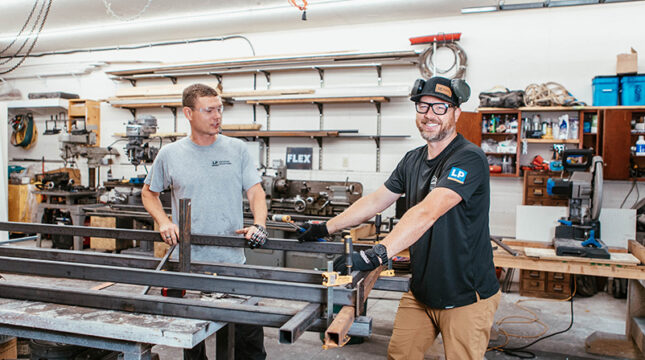5 essential small business insurance types
These common types of coverage can help cover losses related to your business’ risks:
1. General Liability insurance
Many small business owners opt for general liability insurance since it can cover some of the most common risks, including:
- Accidental injuries that involve your business and anyone who is not an employee. For example, a customer suffers a slip-and-fall injury, breaking their arm after slipping on a wet floor at your shop and wants you to cover medical expenses. Your business insurance could help pay those bills.
- Damage to other people’s property. If you accidentally break a customer’s window while making a repair, your coverage could help pay for its replacement.
- Personal and advertising injury claims, such as copyright infringement or slander, made against your company’s advertising. If a competitor claims you damaged their reputation with your advertising, your general liability insurance could help pay for a legal defense.
General liability can also be a requirement for commercial lease agreements, licensing agencies and client contracts.
2. Commercial Property insurance
Commercial property insurance can cover damage or vandalism to business property that you own, including your equipment, inventory and business structure.
If you need to temporarily shut down due to a covered business interruption, commercial property can protect business owners from a loss of business income.
For example, let’s say you have a coffee shop and you own its commercial location. If a tree falls and crashes through the building’s roof, a commercial property policy could help pay for the repair.
3. BOP insurance (Business Owner’s Policy)
A business owner’s policy, also called a BOP insurance policy, combines all the coverage of both general liability insurance and commercial property insurance in a single, efficient and comprehensive package.
The beauty of a BOP is that it can carry more protection than just a single policy. It can help cover damage that you or your employees may inadvertently cause to another person’s property, as well as bodily injury accidents that injure patrons or passersby to your business.
BOP keeps going to help protect your business inventory in the event of a fire, water damage or other covered event.
It also covers business income interruptions, advertising injury if you’re accused of copyright infringement, libel or slander, and some court and legal fees if you need an attorney for a lawsuit. In short, a BOP can do a lot.
4. Workers’ Compensation insurance
Workers’ compensation insurance can help pay for medical and rehabilitation costs and lost wages if an employee experiences a work-related injury or illness.
For example, say a restaurant employee pulls a muscle lifting a heavy box. Workers’ comp insurance could pay for the employee’s medical care and rehabilitation costs related to the injury.
Many states require employers to have workers’ comp to protect the health and well-being of employees. In some states, optional workers’ comp may also cover business owners and self-employed workers.
5. Professional Liability insurance
Professional liability insurance, sometimes known as errors and omissions (E&O) insurance, can protect you against damages that may occur when providing a service or advice to clients.
If you’re accused of causing a financial loss due to professional negligence or a mistake related to your business services, your professional liability policy could help cover related costs.
Professionals like insurance agents, real estate agents, legal services and financial advisors tend to carry professional liability insurance.







